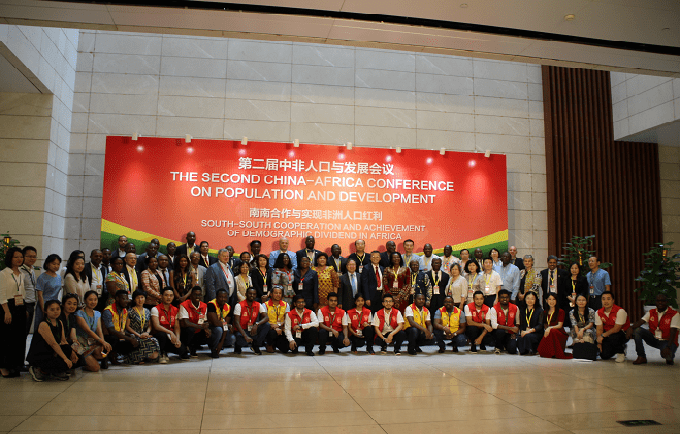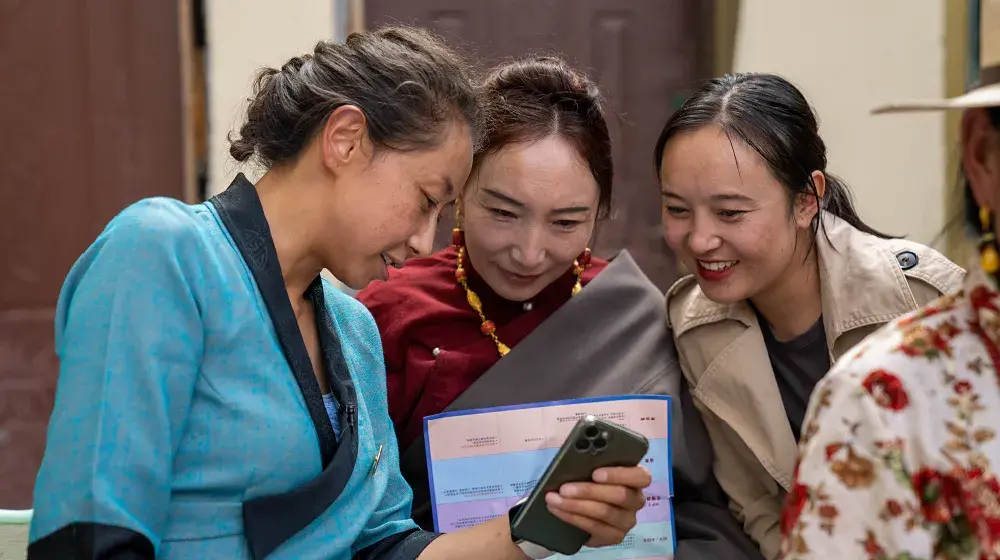GUANGZHOU, China – The 2nd China-Africa Conference on Population and Development which focused on strengthening South-South cooperation ended on Tuesday in the Chinese city of Guangzhou.
The conference, with the theme “South-South cooperation for population and development and achievement of demographic dividend in Africa”, adopted an outcome document for harnessing demographic dividend in Africa, reflecting on experiences and lessons from China.
Cui Li, Vice Minister of China National Health Commission delivered a speech at the opening ceremony. She said, the past years have seen fruitful progress in China-Africa practical cooperation on population and development.
China and Africa have been role models for South-South cooperation on population and development. In March 2016, a ministerial strategic dialogue was conducted in Beijing, with the declaration of the Beijing Call for Action, for promoting South-South cooperation on population and development over the next five years.
“South-South cooperation on population and development is an important step towards implementation of the 2030 Agenda for Sustainable Development,” said Nicolas Rosellini, the United Nations Resident Coordinator in China at the opening ceremony.
“The UN system will continue supporting China’s increasing role in international affairs, promoting global and regional dialogues, and expanding South-South Cooperation to assist other developing countries, for the achievement of the 2030 Sustainable Development Goals within the contexts and needs of the developing countries.”
In May 2017, with the support of the Chinese government and the United Nations Population Fund (UNFPA), a South-South cooperation centre of excellence on population and development was launched in Beijing, during the Belt and Road Forum for International Cooperation. The centre has provided a critical platform for developing countries to exchange knowledge and experiences on population and development.
“China and Africa have a total population of 2.6 billion, accounting for more than one third of the world’s total. The sheer size of the populations involved gives special significance to the collaboration between the two sides on population and development.” said Björn Andersson, the UNFPA Regional Director for Asia and the Pacific.
China, the most populous country, is now the world’s second largest economy. Demographic dividend has been widely acknowledged as making a significant contribution to the country’s unprecedented economic progress. Since the reform and opening up in 1978, China has experienced rapid economic growth and improvement of people’s lives and wellbeing. A series of economic and social policies have been implemented that complemented the demographic transitions of increasing young and working age population, and the low dependency ratio.
The Chinese experience showed that, only if demographic transition is combined with appropriate economic and social investments, can it be turned into demographic dividend for accelerated economic growth.
In Africa, while a few countries have already completed demographic transition without possibly realizing a demographic dividend, most countries are in the process of experiencing a demographic transition.
“Young people have the potential to bring about real changes in the economy. To harness the demographic dividend, we must give more opportunities for young people to fulfill their potential,” said Nyeleti Mondlane, Minister of Youth and Sports of Mozambique.
The African continental development vision ‘Agenda 2063’, calls for investments in education and skills development as well as health for prosperity by 2063. African nations have prioritized the advancement of young people through various development policies and programmes.
The outcome document adopted in the conference admitted that there is no “one size fits all” solution for national efforts to achieve demographic dividend. While the Chinese framework focused on education, employment, empowerment and equity, the experiences of African countries tended to focus on four pillars of health and wellbeing, employment and entrepreneurship, education and skill development, and rights, governance and youth empowerment.
The participants committed to further strengthen their South-South collaborations, and maximize the opportunities associated with the newly established China South-South Cooperation Assistance Fund and other international cooperation platforms.
This is the second annual gathering between China and African countries, to fulfill the commitment of the Beijing Call for Action in 2016. More than 100 delegates from government ministries, academic institutions and think-tank agencies, and the UNFPA country and regional offices participated in the conference.





